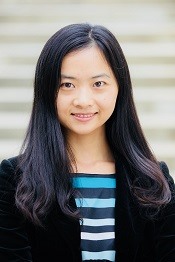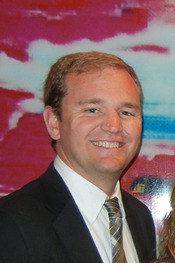Program Information
Panel Discussion: Mentor and Mentee Roles

Y Rong
T Fisher
R Stern
J Boone
Y Rong
Y Rong1*, T Fisher2*, R Stern3*, J Boone4*, (1) University of California-Davis, Sacramento, CA, (2) Therapy Physics, Inc., Costa Mesa, CA, (3) UC Davis Cancer Center, Sacramento, CA, (4) UC Davis Medical Center, Sacramento, CA
Presentations
11:00 AM : Transitioning from Mentee to Mentor in Academic Centers: Finding the balance between serving the clinic and advancing in academia - Y Rong, Presenting Author11:12 AM : Transitioning from Mentee to Mentor in Private Practice: Adapting to A New Reality - T Fisher, Presenting Author
11:24 AM : Mentoring in the Clinic: Achieving the best for patient care - R Stern, Presenting Author
11:36 AM : Mentoring in Research: Finding the balance between achieving productivity and spurring creativity - J Boone, Presenting Author
11:48 AM : Panel discussion - Y Rong, Presenting Author
TH-D-108-0 (Thursday, August 3, 2017) 11:00 AM - 12:00 PM Room: 108
Many young, mid-career medical physicists are now becoming mentors for their younger colleagues. Some may be mentoring residents in a clinical setting, while others may be mentoring graduate students. Still other medical physicists will be mentoring junior faculty in a university setting, or junior colleagues in a hospital or consulting physics environment. In addition, many early-career physicists may experience dual roles in their professional life – both as mentor and mentee. The transition period from mentee to mentor may not always be easy and smooth, and training for this process has been overlooked in many settings. Mentoring is part of the skill set of leaders that requires natural instincts, a benevolent outlook, and training. Indeed, recently there has been a major focus in mentor training at many universities and other institutions – formalizing the mentor-mentee relationship with written contracts, established timelines, and specific objectives. The goal of this professional panel discussion session is to share experiences and provide advice from mid-career physicists and senior mentors. The session aims to empower junior physicists with fundamental elements of how to be effective and successful in their mentoring roles.
Learning Objectives:
1. Understand attributes of a good mentor
2. To learn to manage conflict in the mentor/mentee relationship.
3. To be presented with different mentoring styles and adapt to ones that best suits you and your mentees.
Handouts
- 127-35641-425554-125551.pdf (T Fisher)
- 127-35642-425554-125546.pdf (R Stern)
- 127-35643-425554-126081-307002652.pdf (J Boone)
Contact Email:




